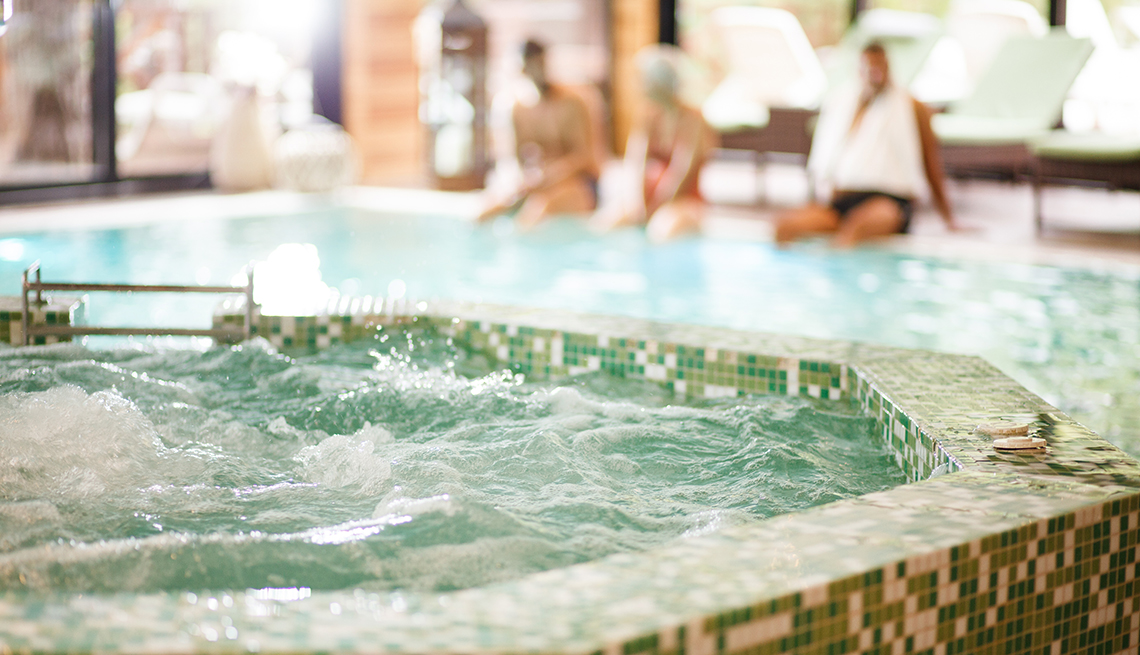Play all audios:
For many vacationers, unwinding means indulging in a soothing soak in a hot tub at a hotel, resort or vacation rental. However, before you dip your toes, especially if you’re an older adult,
consider the potential health risks associated with using a public hot tub. A report from the Centers for Disease Control and Prevention (CDC) from 2015 to 2019, found a total of 208
confirmed outbreaks of illness associated with “treated recreational water,” primarily involving public swimming pools, hot tubs and water playgrounds. These outbreaks resulted in 3,646
cases of illness, 286 hospitalizations and 13 deaths. Although most outbreaks occurred in June, July or August, health experts believe the actual numbers may be significantly higher since
many cases go unreported. Hot tubs can be a particular concern for vacationers. During the study’s five-year period, 1 in 3 water-related outbreaks were connected to hotels or resorts,
according to the CDC. Among those, the majority were associated with hot tubs (70 percent). Read on for health-related reasons you may want to avoid hot tubs, especially if you’re an older
adult. WHO SHOULD AVOID HOT TUBS? It may come as no shock that your body temperature rises when you’re in a hot tub. But the heat may put stress on the heart of someone with heart disease.
Usually, the body produces sweat to cool you down, but this process is less effective in a hot tub, making it easier to overheat. As a result, your blood vessels expand to try to release the
heat, diverting blood from your core and increasing your heart rate. For those with heart disease, this may lead to: * Low blood pressure (or, if you have blood vessel disease, increased
blood pressure) * Dizziness * Nausea * Irregular heart rhythms * Poor blood flow * Heart attack Certain medications can also put you at higher risk for heat-related health problems. For
example, blood pressure medications such as beta-blockers can slow the heart rate, interfering with the body’s ability to cool itself. And diuretics can increase salt and water excretion,
putting you at greater risk for dehydration and heat exhaustion. Additionally, people who have epilepsy or seizure disorders should always use a hot tub in the presence of someone they trust
who can assist in case of an emergency. Pregnant women are advised to avoid hot tubs because it may harm the fetus, especially during the first trimester, according to the Cleveland Clinic.
DANGERS OF ALCOHOL AND SUBSTANCE USE Since the heat from a hot tub expands blood vessels, causing blood pressure to drop, people who already have low blood pressure can pass out in a hot
tub, which can lead to drowning. Drinking alcohol while using a hot tub can also combine with the heat to lower blood pressure and impair judgment. Feeling woozy, combined with slippery
surfaces, can cause slip-and-fall accidents and an increased drowning risk if mobility, muscle or balance issues are exacerbated while enjoying a soak. The CDC recommends that hot tubs be no
warmer than 104 degrees Fahrenheit.

